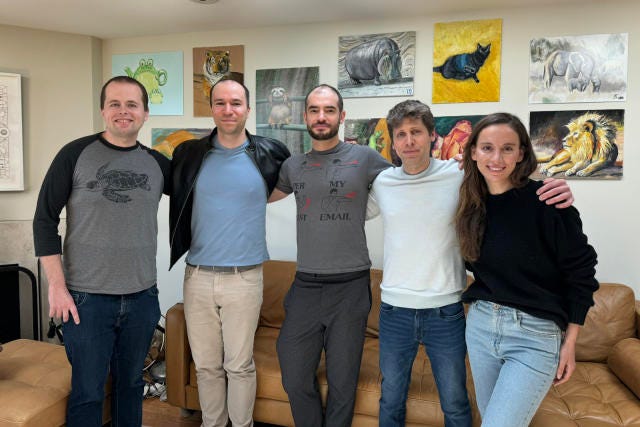Why OpenAI is entering the search market

🌈 Abstract
The article discusses why OpenAI is entering the search market, arguing that it is a defensive reaction to challenges posed by Google and Meta in both the enterprise and consumer markets. The key points are:
- OpenAI is losing mindshare among enterprise customers as Google, Anthropic, and Meta have demonstrated the ability to produce GPT-4 level language models, reducing OpenAI's competitive advantage.
- In the consumer market, Google and Meta are aggressively integrating generative AI features into their products for free, which risks diverting users away from ChatGPT.
- To stay relevant, OpenAI needs to expand its distribution and user base, which is driving its decision to enter the search market and compete with Google.
- However, the article argues that it will be challenging for OpenAI to beat Google in its core search business, as Google has significant advantages in data, distribution, and personalization.
🙋 Q&A
[01] Why OpenAI is entering the search market
1. What are the key reasons driving OpenAI's decision to enter the search market?
- OpenAI's existing initiatives like ChatGPT plugins and the GPT Store have failed to be commercially viable, so the company needs new avenues for growth.
- Google and Meta have posed significant challenges to OpenAI in both the enterprise and consumer markets, forcing OpenAI to compete in search as a defensive reaction.
- In the enterprise market, Google, Anthropic, and Meta have demonstrated the ability to produce GPT-4 level language models, reducing OpenAI's competitive advantage.
- In the consumer market, Google and Meta are aggressively integrating generative AI features into their products for free, which risks diverting users away from ChatGPT.
2. How does the search market represent a potential opportunity for OpenAI?
- Winning the search market could be a multi-trillion dollar opportunity for OpenAI, given Google's massive market cap compared to OpenAI's valuation.
- A significant fraction of ChatGPT usage is already for search-like queries, so entering the search market directly aligns with OpenAI's existing user base and use cases.
3. What are the key challenges OpenAI faces in competing with Google in the search market?
- Google has significant advantages in data, distribution, and personalization that will be difficult for OpenAI to replicate.
- OpenAI's strengths lie more in technical innovation rather than building large-scale distribution and user relationships, which is crucial for succeeding in the search market.
- If OpenAI simply tries to copy Google's generative AI search strategy, it risks losing differentiation and making its search product boring compared to Google's.
[02] What OpenAI should do
1. What strategy does the article recommend for OpenAI in the search market?
- OpenAI should avoid blindly replicating Google's generative AI search strategy, as that plays right into Google's hands.
- Instead, OpenAI should focus on keeping things simple and avoiding overcomplicated user interfaces and information overload, which could differentiate its search product from Google's.
- OpenAI should try to induce Google to make mistakes in rolling out generative AI features, and capitalize on those mistakes by attracting disgruntled advertisers and publishers.
- Partnering with Apple or Samsung could be a lifesaver for OpenAI, as it could make ChatGPT an indispensable embedded agent on those platforms.
2. Why does the article suggest OpenAI should avoid trying to become "Google 2.0" in search?
- OpenAI does not have the resources to fight on all the fronts that Google competes in, so trying to replicate Google's full search strategy is likely to backfire.
- OpenAI's strengths lie more in technical innovation rather than building large-scale distribution and user relationships, which is crucial for succeeding in the search market.
- If OpenAI simply tries to copy Google's generative AI search strategy, it risks losing the unique luster and differentiation of ChatGPT.
Shared by Daniel Chen ·
© 2024 NewMotor Inc.